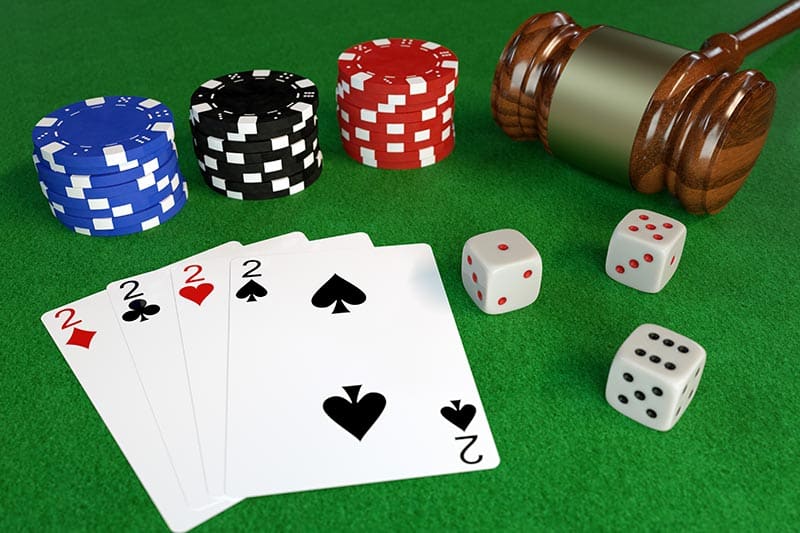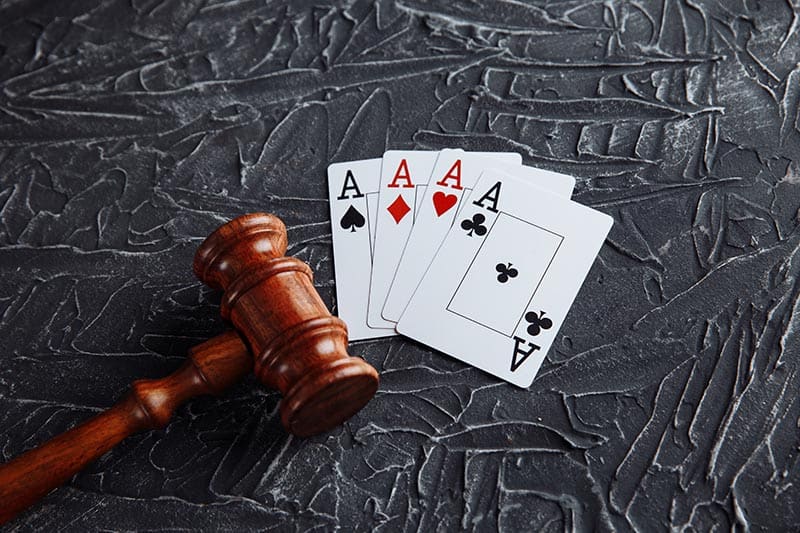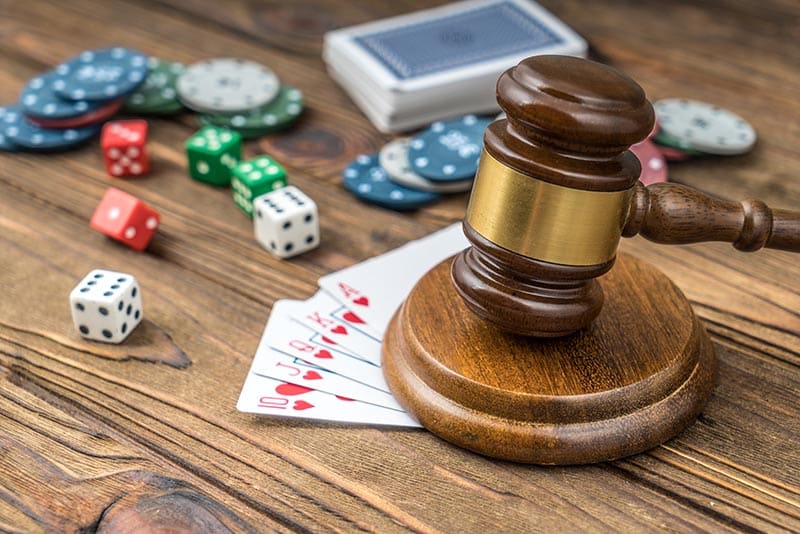
Lithuanian Licence: Advantages of Launching a Casino in the Baltics
The Lithuanian population has been following the path of civilised development of the gambling industry for about 20 years. The legal structure of the local market not only allows all types of casino entertainment but also fully complies with the standards of the European Union.

From us, you will find out why the market is popular with major suppliers and investors, how much does it cost to obtain a local licence, and what benefits it gives operators.
Formation and the History of the Sector
The country became the first republic to withdraw from the European Union. By the time the state’s independence was recognised by the Soviet authorities, the local commercial market was already regulated by the Enterprise Act. The document recognised the right of entrepreneurs to run a private business, including in the gambling sector.
Statutory provisions covered all areas of commerce and did not impose restrictions on casino owners. However, uncontrolled growth of the market never happened. Slot machines that were installed almost everywhere were practically not in demand.
In January 1994, the organisation of gambling was completely prohibited by the local authorities but the reform went unnoticed by the broad public. In large-scale administrative centres, there were still some slot machines but the only legal type of entertainment was lottery and bingo. However, even this type of gambling was not very popular with Lithuanians.
In the 2000s, the country decided to join the EU and began to drive the legal structure to the specified requirements. One of the obligations to the European Union was the legalisation of the gambling market.
Despite the negative attitude of the public and protests of the Catholic Church, the law on the regulation of the gambling industry was endorsed in May 2001 and came into force on July 1. During the same period, the government formed a special Commission the task of which is the supervision of the casino market.
The Main Provisions of the Law
Despite the complete legalisation of the industry, the casino licensing procedure in Lithuania is still considered one of the strictest in the EU. Given the popular discontent, the regulator has decided to control the gambling business and create a multi-level system for checking applicants.
Excerpts from the law:
- a Lithuanian casino licence allows you to open land-based enterprises in all regions of the country;
- the industry is controlled by a single government agency, which was renamed as the Gambling Supervision Service in 2012 and was included in the structure of the Ministry of Finance;
- gambling locations cannot be opened in public places (these are metro stations, shopping centres, airports, etc.), near educational and medical institutions or on the territory of residential buildings;
- on the territory of the country, it is prohibited to produce gambling hardware;
- slot games are divided into 2 categories, which have different operational restrictions;
- a gambling licence in Lithuania is issued for each type of activity separately (slot machines in offline locations, bookmaker's offices, bingo, sweepstakes, etc.);
- only people over 18 years old can visit bingo locations and betting shops; and to place bets in land-based casinos, gamblers should be no less than 21 years old;
- winnings of less than 100 thousand litas must be paid in cash; bigger awards can be transferred through the bank but no later than 24 hours after the application for withdrawal has been filed.
Classification of Gambling Equipment
All hardware devices used in offline locations are subject to mandatory local certification and are divided into 2 categories. The goal of such a program is to create the most transparent and secure playing conditions.
Classification of slot machines:
| Equipment evaluation criterion | Class А / Class В |
| Maximum bet per round | No limits / 1 litas (about 0.3 euros) |
| Maximum winnings | No limits / x200 to the maximum bet |
| RTP percentage | 90% / 80% |
| The deposit type | Only tokens of the gambling establishment / |
| Progressive jackpot program | There is such a program / Tokens or fiat money |
| The place of the installation of equipment | Only in gambling halls / In the rooms with slot machines |
Economic Benefit of the Legalisation of the Gambling Industry

The first Lithuanian licence was issued the next year after the opening of the market (in 2002). In the same year, the following establishments appeared in the country:
- 4 land-based casinos;
- 6 gambling clubs with hardware equipment;
- 3 betting shops.
The public treasury was replenished by 2.5 million litas. The government hoped for bigger figures but it was not possible to reach the estimated value of 15 million litas due to the too strict market control.
The industry is growing rapidly. By the end of 2020, the following locations were opened:
- 17 casinos, 8 of which operate in Vilnius;
- 201 gambling hall with slot machines;
- 129 bookmaker’s offices.
The country does not have its providers of slot machines and software but big international companies like MrSlotty, Tom Horn, EGT, NetEnt, Microgaming, Greentube, and others are glad to work in this market.
iGaming Sector Legalisation Program
The most significant amendments to the country's gambling legislation were adopted in 2015. The country officially joined the EU, placed owners of hardware devices of category B under an obligation to adapt equipment so that it can accept deposits in euros, and increased the size of cash payments to 30 thousand euros.
In January 2016, the law on the legalisation of the digital casino market came into force. A similar document from Belgium was taken as a pattern of the bill.
The provisions in both laws are almost identical. For example, legal virtual platforms can be launched only by the owners of already existing land-based establishments.
Entrepreneurs must own at least:
- 1 casino;
- 10 gambling halls with slot machines;
- 20 betting shops;
- 5 locations where clients can place bets on horse racing.
Online casinos with Lithuanian licences can offer their customers not only classic gambling entertainment but also bets on sports events. The digital certification of the casino segment is organised in accordance with the same rules.
By default, all local gaming sites use the interface in Lithuanian and accept deposits in euros.
Online Casino Industry after the Pandemic
By 2019, the volume of the country's digital segment was tripled. And by the same year, a growth spurt of 44.5% was recorded. The overall revenue of iGaming reached 40.5 million euros.
During the quarantine period of 2020, the Internet industry grew by another 47.1%, bringing more than 59.6 million euros to the local public treasury.
The intense development of the sector became the momentum for changing the existing rules, updating them, and tightening control over the market. For example, the black list of unlicensed suppliers has significantly expanded, and it includes even such well-known brands as William Hill, PokerStars, and others.
Legislative Amendments of 2021
One month ago, the local regulator introduced a number of reforms and amendments to the current legislation:
- Ban on advertising. Such restrictions are now imposed in most countries of the world. The Lithuanian authorities have prohibited the promotion on the Internet and in the land-based segment. It is also illegal to advertise special offers, discounts, and other elements that can motivate people to visit a gambling establishment.
- The distinction of licences. The amendment is still under development but as soon as it comes into force, a permit for owning an online casino in Lithuania will be issued without reference to the offline sector. Businessmen will not have to open an offline location or network of betting shops.
- The validity period of a licence. It is enough to get a certificate for a digital platform. The document has an unlimited validity period and does not require regular renewal. Owners of offline casinos need to confirm the licence every 5 years and additionally approve the operation of the enterprise in local authorities.
- The self-exclusion right. Casino visitors and users of sports betting platforms have an opportunity not only to control the amount of money that was deposited but also independently block personal accounts for any period. It is the duty of entrepreneurs to constantly maintain a register of excluded users.
- Penalties. For the first time, several articles appeared in the law, according to which the local regulator was able not only to block illegal operators but also claim monetary compensation from violators of up to 50 thousand euros.
How Much Does the Local Licence Cost?
One of the main advantages of working in the local market is the most transparent financial structure. All prices, fees, and administrative costs are set in law and are strictly controlled by the Ministry of Finance.
The organisation of a gambling project in the Baltics will cost:
- 10 thousand litas ― a standard price of the application filing, its consideration, and the certification process;
- from 2 to 30 thousand litas ― payment for the opening of each new land-based location of the same brand.
Tax Rate
In addition to the fixed licence fee, casino owners must make the following payments on a quarterly basis:
- from 600 to 1800 litas per one unit of equipment (the size of the fee depends on the class of the device);
- 12 thousand litas per gaming table (with card games, roulette or dice).
In January 2020, an updated tariff scale for income taxes came into force. The government raised the previous tax rates:
- from 10% to 13% for online casino operators;
- from 15% to 18% for owners of offline locations.
Tariffs will be updated after the new licensing reforms of 2021 will enter into force. The estimated rates are:
- 500 thousand euros for an autonomous licence for online projects;
- 1 million euros for a combined certificate for the opening of offline and digital casinos under one brand;
- 300 thousand euros for the purchase of one gaming table or slot machine;
- 100 thousand euros for the opening of a bookmaker's office.
How to Obtain a Casino Licence in Lithuania

Although the country's GDP growth record became limited due to the global economic crisis and the pandemic, in 2020 alone, the welfare of local adults has increased fivefold. The average revenue also rose, reaching the indicators of Portugal and Greece.
The following factors speak in favour of launching a casino in Lithuania:
- the largest population in the Baltics: the country’s residents spend up to 23% of aggregate expenditures for leisure on gambling;
- the political stability of the region;
- an attractive economy that attracts foreign investors (from Sweden, Great Britain, Germany, and the Netherlands);
- the rapid growth of the online segment;
- the transparent financial market structure;
- full compliance with international legal standards.
To buy a turnkey casino and start working within the local legal framework, entrepreneurs must perform the following actions:
- Register the company. Investors may not be residents but they are obliged to be granted legal status in the country. The board of directors and the staff of the company are formed by the founder.
- Form the authorised capital. Owners of small gambling clubs (locations with 10 hardware devices, sweepstakes, betting shops) must have 1 million litas. The size of the required initial capital for launching an offline casino with slots and gaming tables is 4 million litas.
- Form the reserve fund. Businessmen must have emergency funds to pay the winnings: 40 thousand litas for one gaming table, 25 thousand for class A equipment, and 300 litas for class B equipment.
- Buy the necessary hardware. The gambling hall should contain at least 10 units of equipment. The casino must have at least 30 slots and 3 gaming tables.
- Control the attendance. Entrepreneurs can provide services to both residents and foreign users. The main task is to control the age of the audience.
The Main Things about the Lithuanian Gambling Industry
Lithuania is the largest Baltic state that has legalised all types of casino entertainment: lotteries, sports betting, and sweepstakes.
- The local law is almost similar to the structure of the Belgian legislation. The industry control program is considered one of the strictest in the EU but pays off: the domestic market is stable and has an annual turnover of over 1.1 billion euros.
- To launch a virtual casino, first of all, operators will need to implement an offline gambling project. The program is similar to the provisions of the Georgian law but the authorities are planning to reform the system by January 2022 and differentiate licences for offline and virtual projects.
- From July 2021, it is prohibited to advertise any gambling services. The restrictions affect not only TV and radio broadcasts. Operators are prohibited from advertising special offers, gifts, bonuses, and other elements that may motivate the audience to start placing bets.
Our clients are offered a large selection of turnkey gambling platforms and services that can help them to scale an already existing business.
From us, you can order:
- live casino games;
- mobile content;
- development in VR and 3D formats;
- sportsbook software, and much more.
Implements a business project of your dreams with a single click!
Check the information used to contact us carefully. It is necessary for your safety.
Fraudsters can use contacts that look like ours to scam customers. Therefore, we ask you to enter only the addresses that are indicated on our official website.
Be careful! Our team is not responsible for the activities of persons using similar contact details.



























 Demo
Demo 


